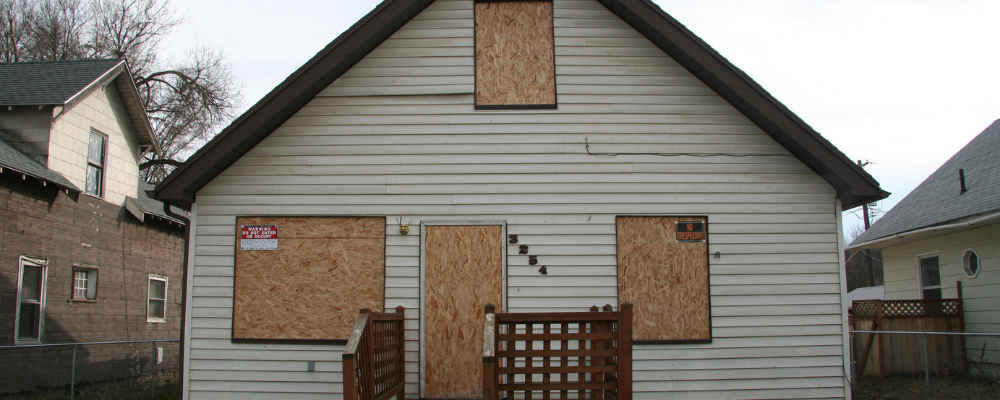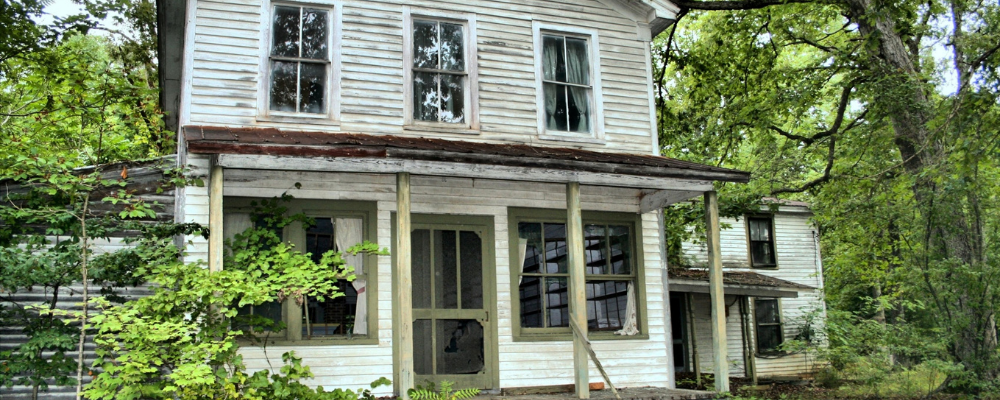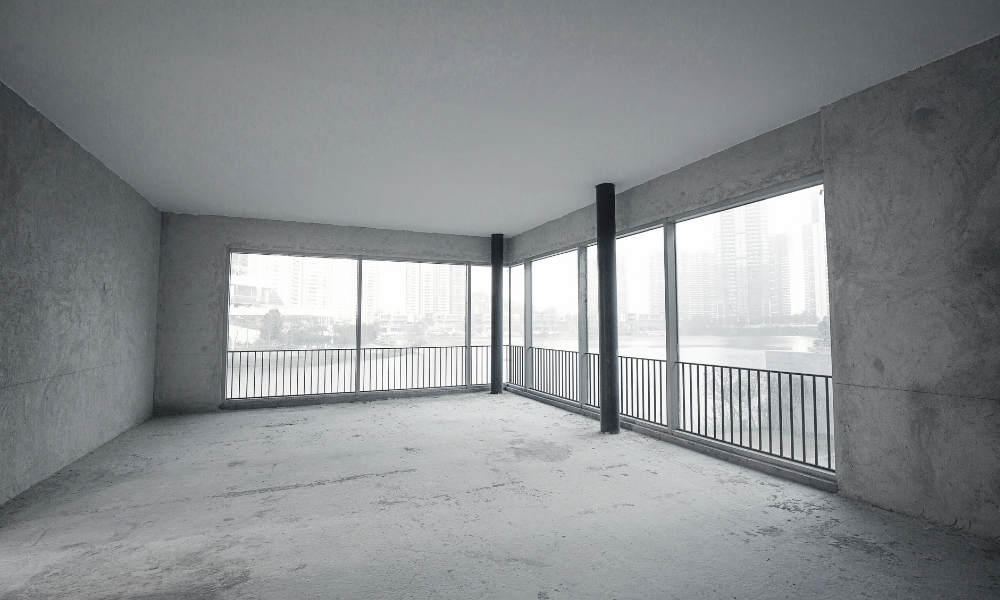A quick outline
Vacant houses can offer real estate investors a great way to find good deals, but they can be difficult to locate and often come with their own set of problems. If you’re thinking about investing in vacant houses for your real estate strategy, read on to learn about how to find vacant houses.
Table of Contents
Real estate investors are always on the lookout for good investment property deals. Quite often, these properties are on auction or in foreclosure. However, some investors are specifically looking for vacant houses because for savvy investors, these can represent a great opportunity. If you know what to look for, buying vacant properties can work out in your favor.
A vacant property is classified as a property that has been abandoned by its occupants, in other words, a house where nobody lives. However, it’s important to note that someone still has legal ownership of the property, even though nobody is living in it. If you’d like to consider this strategy, let’s look at how to find vacant houses.
How do you know if a house is vacant?
First things first, it’s important to know how to identify a vacant house. So, you should look for any signs that may indicate that the owners have left the property, such as:
- Overgrown yards due to a lack of maintenance.
- Notices in the windows because there’s nobody to receive these.
- Damage to the exterior of the house.
- No cars parked in the driveway.
- The lights have been off for a long time.
- The windows or doors are boarded up.
- There may be broken windows.
- There are no curtains in the windows.
- Postal workers’ notes are piling up in the mailbox.

How to find vacant houses near me
Drive around the neighbourhood
One of the most widely used strategies for finding vacant homes in a particular area is to drive around that area and look for them. This strategy is actually called ‘driving for dollars‘. A good place to start is by deviating from your usual routes and taking new roads that you haven’t been down before. Look for signs of a vacant home, like the ones mentioned above, and you could find a great opportunity in the right area.
If you don’t have the time to do this yourself, you can hire someone to drive around for you and take photos of any vacant homes so that you can make a decision from there. Pay close attention to any notices on the door, these could be foreclosure notices which would indicate that the owners can no longer afford the property and will most likely be very motivated to sell before foreclosure.
Attend estate sales
Before a property becomes vacant, estate sales will usually take place, which means that the contents of the home are sold. Finding estate sales can be a useful tool for finding good property deals, because homes that are in an estate sale usually have owners that have deceased, or whose assets needs to be sold. This means that home will more than likely be vacant and then put on auction or sold within a short time frame.
Contact postal offices
Another strategy for finding vacant properties is to contact your local postal office and chat to the people who work there. They will usually have a good idea of which homes in the area have “return to sender” mail or where the mail is not being collected from the mailbox. They could point you in the direction of these homes that are more than likely vacant.

Landlord evictions
Real estate attorneys have lists of all the eviction notices that have been filed in the area and if you can get your hands on these lists, you can contact the property owners and find out if they’d want to sell their property, seeing as it will soon be vacant. Similarly, any properties listed as “for rent” online are usually vacant and the owners could be willing to sell, particularly if the property is sitting vacant for too long.
Direct Advertising
Marketing the fact that you’re looking to buy vacant homes is another valid method for finding them. People who live near vacant homes are often happy to get them sold, so they are likely to respond to your advertising effrots. You can put up signs, send out direct mails, and use various other advertising techniques to spread the word that you’re looking to buy vacant homes.
To maximize the effectiveness of direct mail, consider the following steps:
Identify Your Target Audience: Use tools like Propstream to compile a list of vacant or distressed property owners. This ensures you are reaching out to the right people.
Craft Personalized Mailers: Opt for mailers that stand out, such as those with handwritten elements. These tend to have higher response rates, drawing more attention from property owners.
Execute and Follow Up: Send the mailers to the compiled list, and be prepared to follow up promptly with any responses. This approach can lead to increased engagement and potential property acquisitions.
By blending direct mail with other marketing strategies, you create a comprehensive approach that not only reaches property owners directly but also encourages neighbors to initiate contact. This multi-channel strategy increases the likelihood of finding and purchasing vacant homes.
How to find vacant properties online
Rental Property Listings On Popular Real Estate Websites
Real estate websites are a good place to start looking because you can find a variety of rental property listings. These will give you a good idea as to which properties are vacant, and how often they are vacant. If you can find a property that is often without tenants, you can contact the owners and see if they are willing to sell instead of struggling to find longer term tenants.
Vacant house list
You can sign up online to the USPS Vacant House List, which is a list of all the properties in a certain area where the post office isn’t delivering mail because the house is vacant. From here, you can contact the owners and try your luck with getting them to sell to you, without even having to leave the comfort of your home.
Auction websites
Property auction websites are another way to find vacant properties online that have been repossessed by the bank or the lender. You can check when and where these properties are going to be auctioned off and potentially scoop up a good investment property deal.

How to source vacant property leads
Use Dedicated Lead Data Platforms:
There are some online platforms which can be used to get leads, such as Pioneer Data Solutions, PropStream, DealMachine and REsimpli. These platforms offer a convenient way to get targeted vacant property leads delivered straight to your inbox, without having to drive around and search.
To harness the power of these platforms effectively, follow these simple steps:
Sign Up for a Free Trial: Many platforms offer free trials, allowing you to explore their features without a financial commitment.
Enter Your Target Area: Once you’re set up, input your desired location, such as a specific zip code. This helps in generating a focused list of vacant properties.
Use Filters for Precision: Refine your search by applying filters. For instance, select properties that are both vacant and have high equity to ensure you’re targeting the most promising leads.
Save and Export Your Lists: After narrowing down your options, save your search results. You can export these lists into a spreadsheet format, which is ideal for organizing your data and planning targeted direct mail campaigns.
These platforms are not only useful for finding vacant properties but also offer other valuable data sets. You can discover leads on pre-foreclosure properties, probate cases, or absentee-owned homes, making them versatile tools for real estate investors.
By integrating these advanced data strategies, you’ll find that locating high-potential properties becomes a seamless, efficient process.
Contact Utilities Departments:
Places like the city water department are a good way to get vacant property leads. You can ask them to give you a list of all the houses in the area that have turned their water off, for example.
Identify Vacant Rental properties:
Finding rental properties that are often without tenants or currently vacant is a handy tool for getting vacant property leads. Since these are often standing vacant, so the owners may be willing to sell the property instead of continuing to rent it out.
Importantly, if a house is listed for rent (but has no tenants) contacting the landlord or real estate agent managing the property should be fairly straightforward. You can literally reach out to the agent/owner via the online rental listing.
Use Skip Tracing Software:
Skip tracing technology equips you with the contact information necessary to network with property owners, making it an essential tool in real estate transactions involving vacant properties.
To begin skip tracing, you need some basic details about the property or its owner. Typically, this includes the property address, which can be obtained through real estate data platforms or by exploring neighborhoods, a practice known as “driving for dollars.”
Once you have this information, skip tracing tools allow you to search various databases to find contact information like phone numbers. This process is invaluable for real estate investors and professionals who aim to engage with property owners about potential deals or purchases. Ultimately, skip tracing equips you with the contact information necessary to network with property owners, making it an essential tool in real estate transactions involving vacant properties.
Advantages of investing in vacant houses
- Begin renovations right away: Due to the fact that the home has no occupants, you can usually begin repairs and renovations as soon as you take ownership of the home. Which speeds up the process if you’re planning on flipping or renting out the property.
- Easier to spot defects: It’s typically easier to find the defects in a vacant home, which means that you’ll be prepared for the work that needs to be done, ahead of time. You can begin budgeting and finding the right contractors and then hit the ground running once the home is yours.
- Less competition: Vacant home buying isn’t the most popular strategy for real estate investors, which means that you won’t be facing stiff competition and can make an offer without worrying about being outbid.
- Motivated sellers: Property owners who have a vacant house are typically more motivated to sell it and these can work out to be better deals, because they will want to get rid of the house and aren’t as interested in making a lot of money on it. This can be a great option for investors to pick up good deals.
Ultimately, investing in vacant properties offers a unique financial opportunity. These properties often come with the advantage of being priced below market value. Why? Because owners of vacant homes are often eager to sell quickly to escape the burden of property taxes and maintenance costs without any rental income to offset these expenses.
Vacancy is often a sign of financial distress, suggesting that the seller might be open to negotiation. This plays into the investor’s hands, providing a chance to secure the property at a lower cost and increase the potential for a substantial return on investment. Whether you aim to flip the property or hold onto it as a rental, vacant properties can offer real estate investors a strategic edge, even in competitive real estate markets.

Disadvantages of investing in vacant properties
- More repairs and renovations needed: Vacant homes can often cost more to fix up because they may need major repairs and renovations. They’ve been left standing for a while and this means that no maintenance has been done, so there may be a lot of work to do, to get the house ready to sell or rent out.
- Difficult to find: You may struggle to find vacant homes, and if this is your chosen strategy, be prepared to have periods of time where you can’t find any, and other periods where you come across a few options. So, finding the right deal can take longer than buying a regular house for sale.
- Utility bills: There are some unknown factors when it comes to vacant homes, and one of the biggest is that you cannot see the utility bills because there has been nobody using utilities at the house. So, you won’t have a good idea of how much the monthly costs for the property will be.
- Neglected landscaping: Just like the house itself, the landscaping will have been neglected too, which means that once you’ve bought a vacant house you’ll need to get the yard cleared and landscaped which will add more onto your costs, or require time and effort from you.
- Security risk: With the home being vacant for so long, it can be a security risk as burglars often target vacant homes. Once you’ve bought the house, you may need to improve the security to make sure it doesn’t continue to be a target for burglars.
Final thoughts - Should you use this strategy?
While vacant home buying isn’t the most popular real estate investing strategy, if it’s done right, it can be a good way to find great investment property deals. The trick is to go into it with your eyes wide open about the pitfalls of this strategy, and a good idea of where to find these properties. Make sure to weigh up the pros and cons against your financial situation and investing goals, and then decide if this is the right strategy for you.



